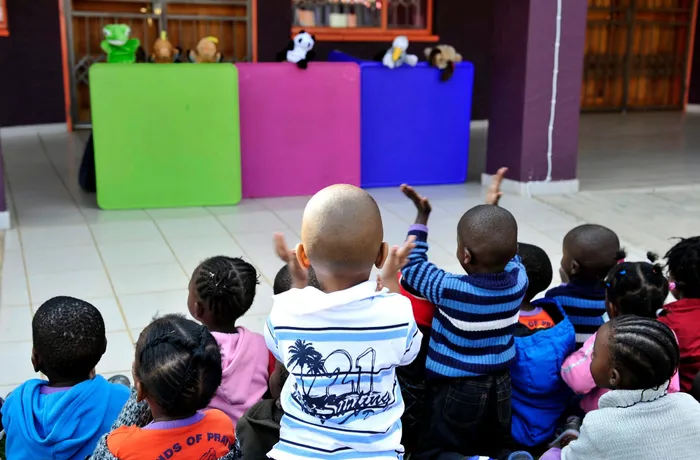
The Thrive by Five Index 2024 reveals that children from disadvantaged backgrounds in South Africa are falling behind in early development.
Image: Independent Newspapers Archives
Strategies used by a non-government organisation (NGO) to educate children are showing positive results for school readiness.
Thanda, an NGO based in KwaZulu-Natal, said focused investment in early childhood development can strengthen foundational learning and set children up for long-term success. The organisation spoke recently on the performance of the children in their Early Childhood Development (ECD) programme regarding readiness for school.
It found that their teaching methods have a high success rate in getting children ready for school. A sample of about 58 children in their programme recorded a success rate of about 95%.
The assessment is done through the Early Learning Outcomes Measure (ELOM), an independent assessment tool developed and managed by the Centre for Early Childhood Development (CECD) in South Africa. This tool is designed to evaluate key areas of early childhood learning, including cognitive, motor, and social-emotional skills, to assess school readiness.
The ELOM national trend shows that many children are struggling and start school not ready. The Thrive by Five Index 2024 released recently showed a decline, with only 42% of enrolled children meeting age-appropriate developmental milestones.
The 2021 ELOM results found that only 46% of children nationally were on track. Alarmingly, the study found that only 18% of children not attending an ECD centre are on track. “Thanda continues to demonstrate that quality early learning is possible, even in low-resource settings,” said the organisation in a statement.
“Thanda’s model shows that consistent mentorship and a structured curriculum can drive lasting change. In its most recent ELOM assessment, 95% of Grade 00 children in Thanda’s ECD programme were rated ‘on track’ across key developmental areas, and none were falling far behind, compared to 30% nationally in the red. This performance is far above both the provincial and national averages, showcasing the impact of Thanda’s approach.”
Speaking of the education tactics it used, Thanda employs a minute-by-minute, storybook-based ECD curriculum specifically designed for low-resource, rural settings. Each lesson guides ECD practitioners through what to do, how to do it, why it matters, and which developmental skills it supports. The curriculum provides structure and clarity for practitioners who may not have had formal ECD training or exposure to quality early learning environments.
Thanda’s practitioner training focuses on both pedagogical and personal development. Training encourages reflection, problem-solving, and professional growth, helping teachers think about how they interact with children and colleagues. The model combines theory with practical application.
Angela Larkan, co-founder and executive director at Thanda, stated, “As many children across the country undergo school readiness assessments, our results show that a structured curriculum can transform classroom practice down to the minute.”
The KwaZulu-Natal Department of Education had not responded to requests for comment by deadline.